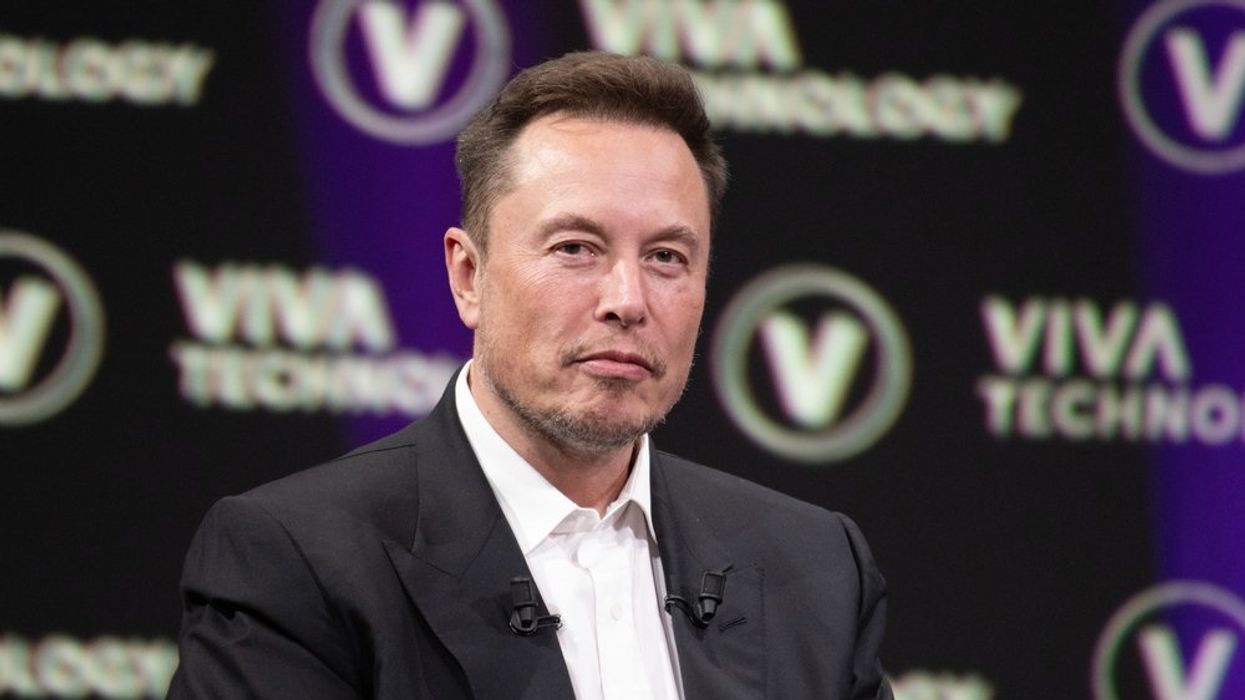Washington (CNN) — Elon Musk is an increasingly important player in global affairs and has been touring the world to meet with political leaders in recent months. But his statements, social media posts and actions prove he is fundamentally unprepared for world leadership, even as he has amassed control over ever more levers of power through his ownership of X, Starlink and other technology platforms.
Days after publicly embracing an antisemitic conspiracy theory favored by White supremacists, Musk is again having to make amends after visiting Israel and meeting with Prime Minister Benjamin Netanyahu and professing his support for Israel’s destruction of Hamas.
It’s not the first time Musk has had to mend fences after being confronted about antisemitism on X, the platform formerly known as Twitter. As recently as September, while feuding with the Anti-Defamation League over his attacks against George Soros and amid a broader rise of anti-Jewish hate speech on X, Musk clarified to Netanyahu in a separate conversation: “Obviously, I’m against antisemitism.”
Musk’s flirtation with themes of Jewish hatred has been a focus of intense public scrutiny, and he has repeatedly tried to shut down allegations of antisemitism. But his own words keep the criticism alive. His inability to shake those associations reflect a deeper and even more significant struggle between Musk’s two halves: The side of him that’s desperate to be understood as a serious, influential world leader; and the side of him that’s mired in an echo chamber of online extremism, one that is increasingly of his own making.
On Monday, Musk summed up his takeaways for Netanyahu this way: “Those who are intent to murder must be neutralized; then the propaganda must stop that is training people to be murderers in the future; and then making Gaza prosperous. If that happens, I think it’ll be a good future…. I’d love to help.”
But he had not acknowledged what landed him in this position in the first place: his endorsement of the antisemitic claim that Jews want to replace Whites in Western countries with non-White minorities, a statement that has been broadly condemned by the White House and other leaders around the globe.
The more Musk elevates misinformation and conspiracy theories, the less equipped he becomes to deal in matters of state — and the more vulnerable he is to manipulation by authoritarians and unscrupulous actors who would seek to use his influence for their own ends.
By welcoming and finding comfort in the presence of others with extreme views, Musk risks falling into a similar trap that has ensnared countless individuals and families and that has previously been exploited by disinformation actors, according to Matthew Facciani, a misinformation and media literacy researcher at The University of Notre Dame.
“We can observe Elon Musk’s Twitter/X activity that he regularly consumes right-wing content and this increased during COVID-19,” Facciani said in an email. “So Musk residing within an information bubble that skews his perception of a political group is no different than many other people who spend too much time within their own social media bubbles.”
“The big difference,” Facciani said, “is that he has billions of dollars and immense influence on the world.”
Quasi-diplomacy
For years, Musk has fanciedhimself as a mover and shaker on the world stage.
His early, grandiose pronouncements about making humanity an interplanetary species were some of the first indications of his perceived self-importance. More recently, however, Musk’s ambitions have come a bit closer to Earth and become far more concrete. Not only has he become a major vendor for government contracts, but he has also been more willing to insert himself into culture wars, or even into actual wars, as in the case of Russia’s invasion of Ukraine.
From unveiling a widely mocked “peace plan” for the two sides to suggesting a settlement of Ukraine’s future by means of a proposed fistfight with Russian President Vladimir Putin to effectively blocking Starlink service in Crimea, Musk has repeatedly angled for a key position in a geopolitical conflict he appears not to fully understand.
Elsewhere, Musk has staked out his own leadership role in the global policy debate over artificial intelligence, appearing with other tech luminaries in an exclusive US Senate event in Washington in September and sitting down with UK Prime Minister Rishi Sunak in November.
In September, Musk also met with Turkish President Recep Tayyip Erdogan, whose regime he accommodated in May by blocking hundreds of X accounts a day before this year’s parliamentary and presidential elections.
And he’s tried to play kingmaker in US politics as well, launching Florida Republican Gov. Ron DeSantis’ presidential campaign on X and promoting the vaccine skeptic Robert Kennedy Jr.’s own long-shot White House bid.
On Monday, after touring one of the sites hit by Hamas’ Oct. 7 attacks, Musk rolled out a sober diagnosis of the Israel conflict.
“One can generally agree that we want a good future for Palestinians,” Musk told Netanyahu. “The challenge is really, how do you get rid of the ones who are hell-bent on murdering Jewish people while minimizing civilian casualties and ultimately stopping the sort of propaganda that is convincing people to engage in murder?”
Musk’s recent eagerness to leap into the biggest geopolitical events of the day speaks to the influential role he plays in the future of society: He is paving the road to the future with his rockets, satellite network, leadership in electric cars and control of one of the world’s most consequential social networks. His access to resources, his proximity to people who wield actual power and his apparent chronic need for attention and acceptance have all combined to propel him to the center of the world stage — no matter his qualifications.
Or edgelord behavior?
Musk may desire influence over global affairs commensurate with that of a top-tier statesman. But his growing association with internet extremism puts him out of step with the kind of world leader he imagines himself to be.
By and large, the international community and the elites who operate in that space — and whose ranks Musk clearly wishes to join — do not subscribe to the edgelord toxicity of the virtual mudpits Musk inhabits online. These are the echo chambers, of which X is increasingly one, that reinforce Musk’s more reactionary, extremist tendencies, the sorts of views that if a country expressed them might help it inch closer toward pariah status.
There are many world leaders who hold extreme or far-right views, of course. But Musk does not present himself as one of these people; instead, he proclaims to defend democratic values traditionally associated with mainstream liberal democracies, including freedom of speech and individual liberty.
The image he presents is that of a champion of the post-World War II international order, which is partly why it is so jarring when he casually riffs on antisemitic, transphobic, homophobic, xenophobic and other hate-filled tropes with paying subscribers of X. It just isn’t done by any serious world leader, not even the ones the United States considers its adversaries.
Nor has a majority of the world community attempted to both-sides Russia’s invasion of Ukraine or tacitly condoned Russia’s annexation of Crimea, as Musk appeared to do with a Starlink policy restricting satellite internet coverage over that region (in a move that ultimately disrupted a Ukrainian attack on Russian naval forces last year).
Musk claimed that had Starlink facilitated the Ukrainian attack, the communications service would have been “complicit in a major act of war,” and Musk biographer Walter Isaacson has said the billionaire feared the possibility of Russian retaliation with nuclear weapons.
But Starlink had already been serving Ukrainian forces elsewhere within the country’s borders; Musk’s stance on Crimea, which does not seem to recognize the region as a part of Ukraine, is fundamentally at odds with a broad international consensus that Russia seized the territory illegally in 2014. (On Monday, Musk made what appeared to be another Starlink decision with geopolitical ramifications by giving the Israeli government control over who could access his satellite internet network in Israel and Gaza; weeks earlier, Musk had vowed that Starlink would “support connectivity to internationally recognized aid organizations” with no mention of preconditions.)
Musk’s outbursts that contradict widely held international norms and values are meant for a specific internet audience that Musk mistakes for being representative of the wider world.
“Social media provides an easy way to find a community of like-minded people. This can be great for building community within many different groups, but it also means we can find support among more politically extreme groups as well,” said Facciani.
Put differently, the constant whiplash that arises whenever Musk makes a provocative remark and then walks it back is the direct result of his fringe internet reality colliding with the real world, over and over.
So long as Musk swims in a sea of transgressive reactionism, his attempts to take on the mantle of serious statesman will forever be regarded as unserious at best and dangerous at worst.
This story has been updated with additional context.
The-CNN-Wire
™ & © 2023 Cable News Network, Inc., a Warner Bros. Discovery Company. All rights reserved.
Elon Musk's PR trip to Israel

Video Source: Advocate Channel
- Here Are the Companies Still Advertising on X After Elon Musk's Anti-Semitic Endorsement ›
- Elon Musk's X Is Making Money Off of Israel-Hamas Misinformation ›
- A Single Year of Elon Musk Has Destroyed Twitter ›
- X-odus: Elon Musk Is Bleeding Money After Endorsing an Anti-Semitic Post ›
- Elon Musk Under Fire For Embracing Nazi Conspiracy Theory ›
- Elon Musk Flamed For Telling Advertisers to F*** Themselves ›
- Media Matters Sues Right-Wing Texas Attorney General For Infringing on Free Speech ›


















































